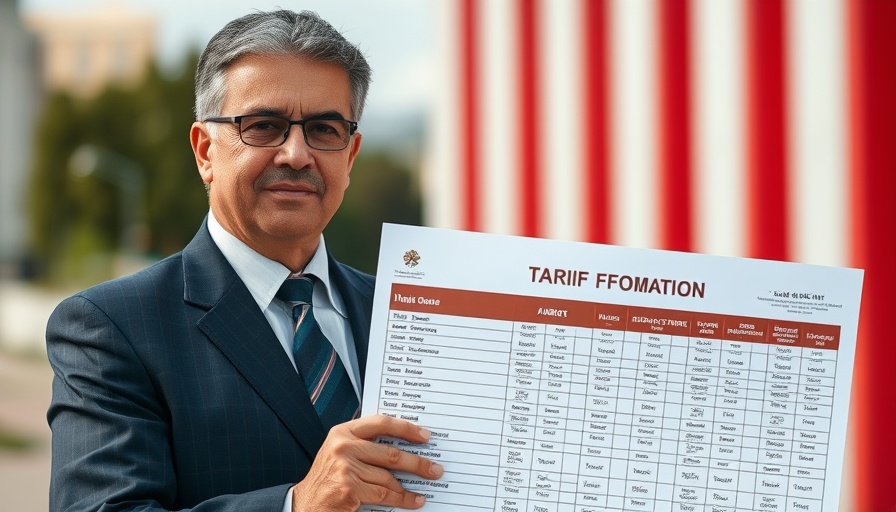
Understanding Trump's Tariff Approach: A Game of Economic Chess
President Donald Trump's recent tariff announcements have left both economic partners and stakeholders in the Metro Detroit area grappling with uncertainty. With sudden changes that seem erratic, it's crucial for Michigan's small business owners and investors to understand the broader implications of Trump's policies on trade and economic relationships.
The Tariff Tidal Wave: Recent Developments
In a move that has baffled many, Trump threatened to increase tariffs on Canadian imports to 35%, while imposing a staggering 30% tariff on goods from both the European Union and Mexico. These developments come shortly after Canada agreed to remove a digital services tax that the President deemed problematic for U.S. tech firms. Trump's unpredictable dealings raise questions about the future of trade agreements, especially when Canada is trying to strategically negotiate a deal by July 21.
Impact on Global Trade Negotiations
For business owners in Michigan, understanding these tariffs is not simply about higher costs; it's about the broader text of international trade policies. Trump’s fixation on tariffs—as shown in his decision to impose a 50% import tax on Brazil—signals a shift in how the United States engages globally. Economists suggest that these tactics indicate Trump may be using trade policies as leverage not just for economic gain, but to sway foreign political landscapes.
Counterarguments: The Economic War or Negotiation Tool?
While some analysts interpret Trump’s aggressive tariff policy as a strategy to induce negotiations, critics argue that such tactics rarely yield productive results. In a global economy, tariffs can hurt not just partners but American industries reliant on global supply chains. In the past, Trump’s administration hinted at needing three months to negotiate favorable trade terms, a promise that fell short with only two significant deals, illustrating the unpredictability of outcomes from such tariff-heavy approaches.
The Local Lens: Metro Detroit’s Economic Climate
With such tumult in trade policies, how does this affect the Metro Detroit economy? Local entrepreneurs and startups must navigate these waters carefully. Higher tariffs can increase costs for manufacturing, negatively impacting local production and the overall business climate. This uncertainty may hinder Michigan's venture capital investment and business networking, stunting growth in burgeoning sectors.
Future Predictions: Where Are We Headed?
As businesses adapt to Trump's trade vision, the course for the Metro Detroit market remains uncertain. Predictions suggest that as long as this tariff-based strategy continues without substantial economic negotiations leading to positive outcomes, we'll see fluctuations that may deter potential investors and disrupt the regional market.
Actionable Insights for Detroit Business Stakeholders
For entrepreneurs monitoring these developments, it's essential to cultivate resilience. Keeping abreast of tariff changes can give businesses competitive advantages. Networking within Michigan’s entrepreneurial ecosystem can unlock resources and strategies to mitigate risks posed by shifting policies. Engaging with local economic development agencies can also provide guidance on how to navigate these unpredictable waters.
Concluding Thoughts: Navigating the Turbulent Economic Waters
As we witness Trump's inconsistent trade policies, one thing remains clear: understanding these developments is pivotal for driving economic growth in Michigan. Stakeholders should stay informed, collaborate, and consider adaptability as they face this evolving landscape. Michigan's business growth and Detroit's stability may very well depend on our collective response to these shifting conditions.
 Add Row
Add Row  Add
Add 



 Add Row
Add Row  Add
Add 
Write A Comment